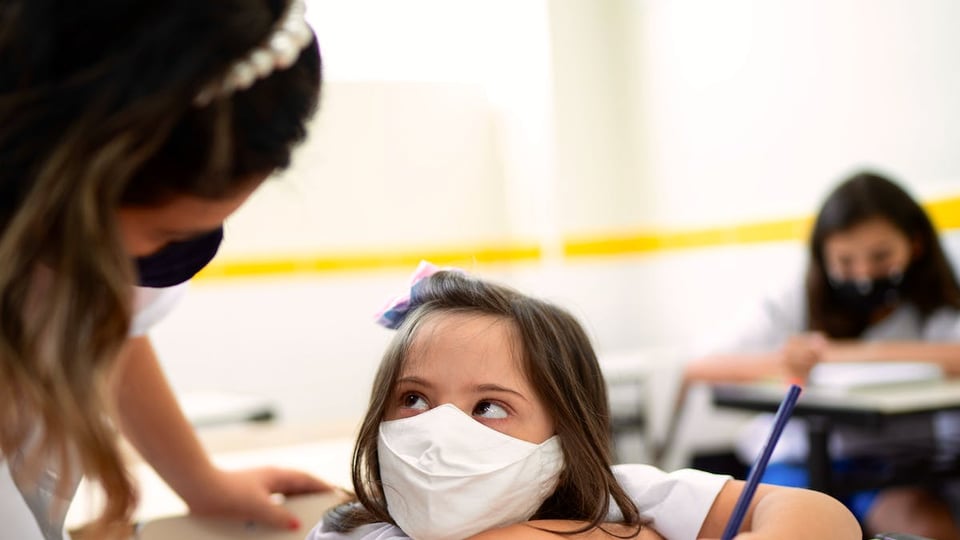Effective Strategies for Providing Self-Regulation and Emotional Safety
Bala Pillai, PT, MA, DPT PCS
Includes all course content in digital format
Prerequisites Required
Description
The spread of the corona virus disease 2019 (COVID-19) was an unprecedented event that rapidly introduced widespread feelings of threat and loss of connection in school-aged children. Feeling unsafe brings out our protective stress response - we either fight, escape, or shutdown. There is a critical need for behavioral supports to be implemented across all students (especially students with special needs with behavioral concerns) since the pandemic. The need to understand how we can make our students feel safe, connected, and curious has never been more critical.
The focus of this course is on identifying, reducing, and eliminating toxic stress patterns in children and caregivers, improving relationships, and using a neuro developmental lens to inform, discipline, and treat. Learn how co-regulation, neuroception, and autonomic states impact our behavior and the behavior of people around us. This course offers educational professionals an awareness of anytime-anywhere behavioral supports that can be used in real time when they most need it using technology that is easily accessible to them.
Highlights
- Effective strategies to connect with your student in ways which make them feel safe
- Neuroception and its impact on therapist-child connection and the ability to learn new skills
- Addressing impulse control, attentional control, communication expectations, and decision making skills while helping them learn the ABC's (Agility, Balance andCoordination) of movement skills
- Speaker led self-regulation and sensory motor activities to provide experiential learning
- Integrate learning to your PT/OT/SLP/classroom sessions to help them maximize their school experience
Learning Objectives
- Assess autonomic states in educational professionals and students to improve connection and care.
- Demonstrate the ability to map autonomic states to identify states of safety and danger to provide experiential learning.
- Apply nervous-system-friendly discipline strategies to optimize student participation and learning.
Course Content
| Effective Strategies for Providing Self-Regulation and Emotional Safety | SCORM Package | ||
| Next Steps | Module |
- Role of Autonomic Nervous System in the Stress Response
- Speaker-led movement session to get the participants' nervous system "in the zone"
- Define coregulation, co-dysregulation, self-regulation, self-dysregulation and neuroception
- 3 autonomic states - social connection, mobilization, shut down
- Clinical Applications
- Identifying the behavior manifestations of the 3 autonomic states in an adult and child
- Speaker-led, nervous-system-friendly activities to connect with your student(s)
- Clinical implications for PT, OT and SLP including addressing impulse control, attention control, communication expectations, and decision-making skills,ABC's of movement to optimize student participation and learning
Bala Pillai, PT, MA, DPT PCS is a Pediatric Certified Specialist (PCS) and Doctor of Physical Therapy (DPT). When she transitioned from the medical environment to the educational environment 25 years ago, she realized that she had to equip herself with tools to address behavioral and learning blocks that inhibit student outcomes within public and private educational environments. She got certified in Educational Kinesiology/Brain Gym and Test Edge/HeartMath. These programs gave her a deeper understanding of the role of the nervous system on behavior and learning. Bala was an active member of the APTA's Practice committee ""Autism Task Force"" and Intervention for Students with Autism"" and has coauthored one article, three fact sheets, and one FAQ sheet when volunteering with various school-based sub committees of the Academy of Pediatric Physical Therapy (2012-14). She has reached approximately 3000 people globally since 2020 presenting several 1-2-hour guest webinars sponsored by various organizations based in India, Singapore, New York and New Jersey on stress, behavior, and learning supports for caregivers and children during the COVID pandemic.
DISCLOSURES
FINANCIAL: Bala Pillai is compensated by Summit as an instructor. She is compensated as the owner of Heart Brain Balance, her private practice through which she offers workshops globally.
NONFINANCIAL: Bala Pillai has no non-financial relationships to disclose.
Summit receives financial support for this course from Physitrack
Click here to check accreditation for this course.